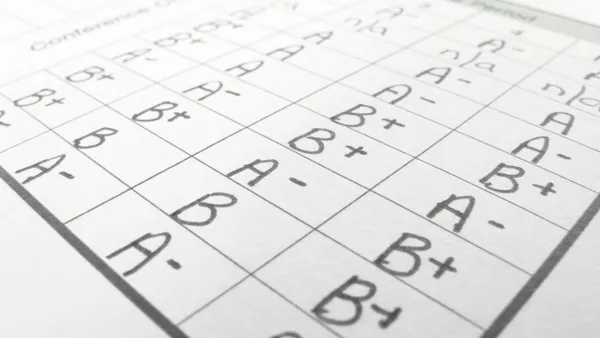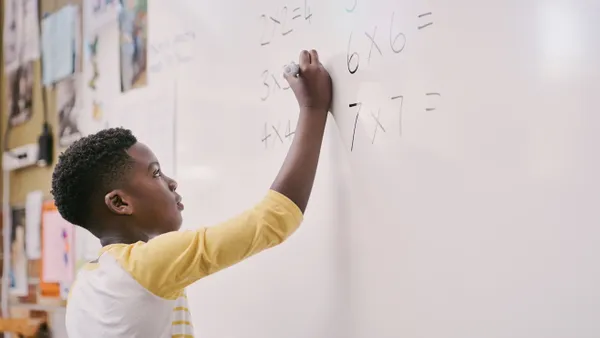Dive Brief:
- The Northwest Evaluation Association, a nonprofit assessment provider, released state and federal policy recommendations this week to guide lawmakers and educators as they navigate expected student learning loss and uncertainty in providing accurate and helpful assessments when students return to in-person instruction.
- The organization recommends that states:
- Make adjustments and investments in secure hybrid learning and remotely proctored assessments in the long term.
- Ensure assessment equity and access for students with disabilities.
- Rethink statewide assessment uses and implementations.
- Reconsider how academic growth is evaluated and measured.
- Provide transparency in seasonal learning trajectories.
- Measure student growth over two years rather than one.
- In addition, it suggests federal leaders including the U.S. Department of Education should align assessments with hybrid and distance learning, incentivize research partnerships between states and institutions to address challenges in these models, provide targeted flexibilities for accountability provisions rather than blanket waivers for 2021 assessments, and be flexible with peer review standards for testing systems to avoid redundant testing, as based on changing needs.
Dive Insight:
In addition to shifting school online, the coronavirus has required leaders to rethink testing, grading, assessments and where learning takes place. But many of these changes could be long term.
Echoing what many administrators have said throughout the months of coronavirus-related school closures, Aaliyah Samuel, vice president of policy and advocacy at NWEA, said the pandemic "has presented leaders with a unique opportunity to reimagine education."
"Instead of enacting short-term solutions, state and federal policies should focus on reimagining our educational system into one that reduces inequities and best equips future generations with the skills they need to thrive within the modern economic system," Samuel said in a press release.
As fall approaches, some education leaders and others are pushing for another round of assessment waivers in the 2020-21 school year after the Education Department granted them for the 2020 spring semester. The NWEA suggests shifting away from that and focusing on targeted flexibilities in state accountability instead.
Meanwhile, district leaders are bracing for steep learning losses following months of closures. A working paper released in May by Brown University's Annenberg Institute for School Reform suggests the average student could begin the new school year having lost a third of reading progress and as much as half of math progress.
According to a separate analysis by McKinsey & Co., a consulting firm focused on improving education systems and student outcomes, the COVID-19 crisis will exacerbate achievement gaps, with Hispanic and Black students as much as three months behind their white peers. The result would be an estimated 15-20% exacerbation of the achievement gap, the report said.
With these possibilities in mind, administrators and district leaders are debating the best ways to design effective assessments and interventions for when students return. While some argue assessment will only worsen gaps, others say there is an effective way to design assessments so they are culturally reflective and impactful.
For assessments to be the latter, experts say they must be purposeful, their data must be accurately interpreted, and only trained professionals should be able to intervene based on results.














